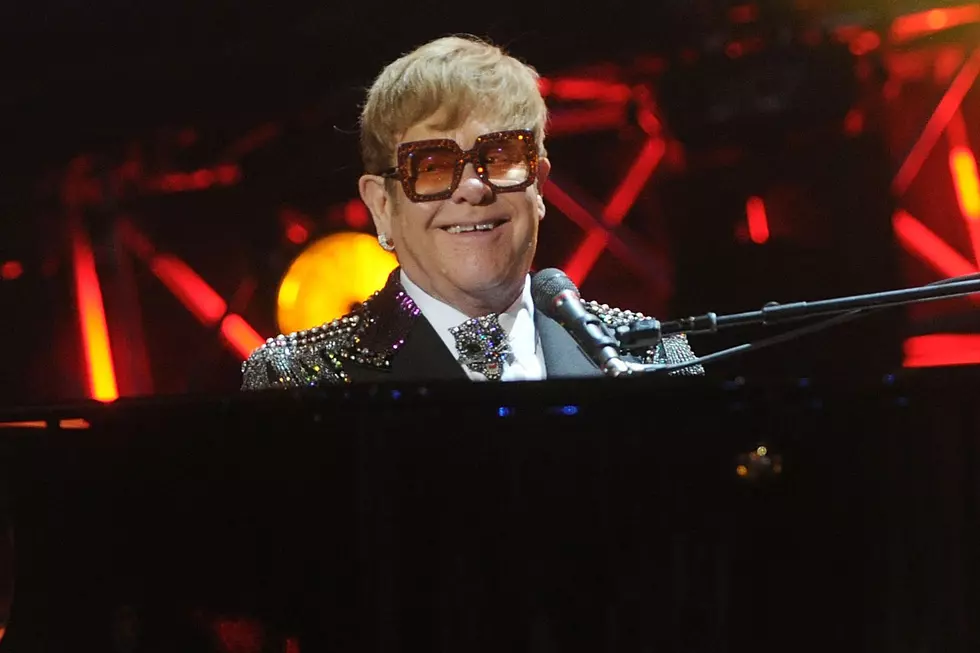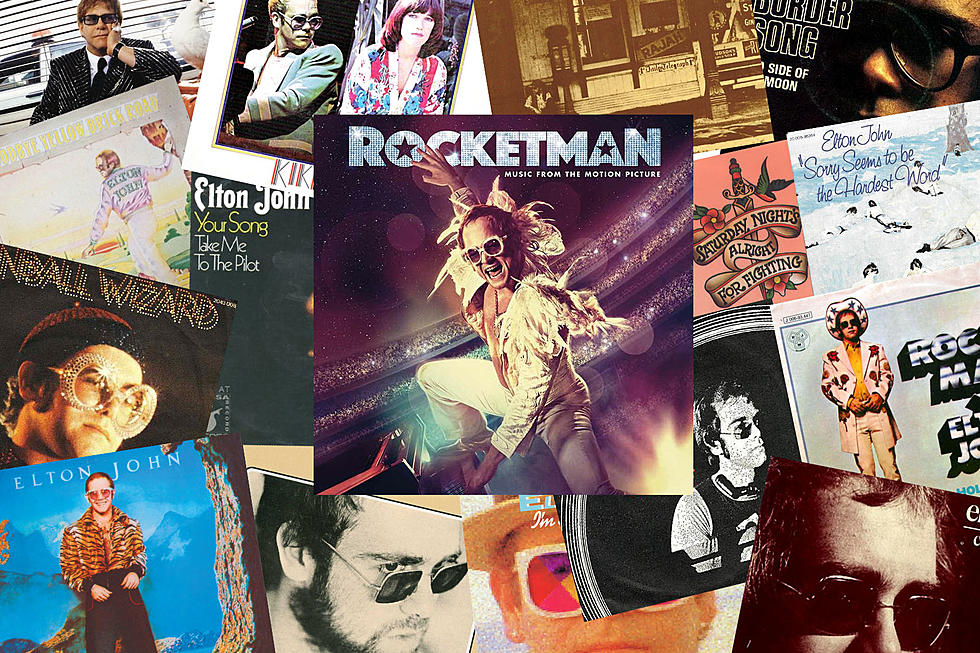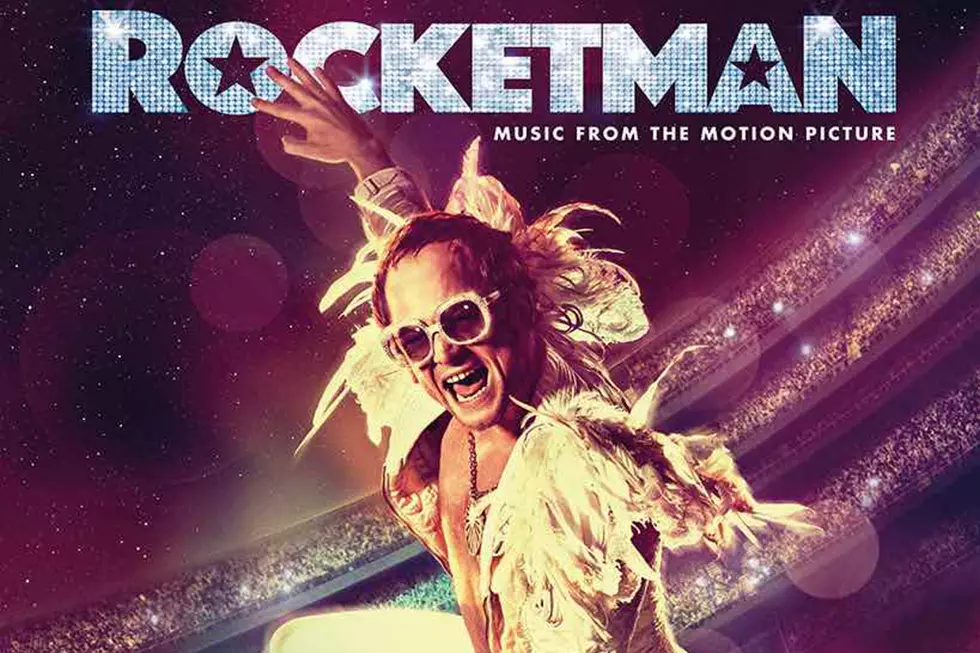
Elton John Wanted an R Rating for ‘Rocketman': ‘I Just Haven’t Led a PG-13 Rated Life’
Elton John said he’d resisted attempts to remove scenes of sex and drug-taking from his biopic Rocketman because he wanted to present a realistic account of his life, despite its inclusion of fantasy moments.
Rocketman received an R rating from the Motion Picture Association of America, although Paramount Pictures was reportedly hoping for a PG-13 rating, which would potentially lead to bigger numbers at the box office. But John insisted that the depiction of his life not be sanitized.
“I just haven’t led a PG-13 rated life,” he wrote in a new Guardian article. “I didn’t want a film packed with drugs and sex, but equally, everyone knows I had quite a lot of both during the ‘70s and ‘80s, so there didn’t seem to be much point in making a movie that implied that after every gig, I’d quietly gone back to my hotel room with only a glass of warm milk and the Gideon’s Bible for company.”
Another reason was that he wanted his sons to be have a reasonably accurate account of his life to look back on in 40 years, he said. It was a motivation that had steered the movie through several stages of its production.
John recalled how his drug use had spiraled out of control in the ‘70s after he became a household name, although he'd only wanted to be a successful songwriter. He pinpointed his visit to the U.S. in 1970 as his breakthrough experience, saying: “I came back from the States a month later with American critics calling me the savior of rock’n’roll. Artists who were just mythic names on the back of album sleeves to me, people I absolutely worshiped, were suddenly turning up in the dressing room to tell me and Bernie [Taupin] they loved what we were doing: Brian Wilson of the Beach Boys, Leon Russell, the Band, Bob Dylan. I’d also lost my virginity, to a man – John Reid, who later became my manager – and come out as gay, at least to my friends and family. This all happened in the space of three weeks. To say it was a lot to take in is a terrible understatement.”
As his fame rose, John attempted to document it all, “I kept a diary the whole time, and it’s inadvertently hilarious," he continued. "I wrote everything down in this matter-of-fact way, which ends up making it seem even more preposterous: ‘Woke up, watched Grandstand. Wrote 'Candle in the Wind.' Went to London, bought Rolls-Royce. Ringo Starr came for dinner.’ I suppose I was trying to normalize what was happening, but the fact was, what was happening to me wasn’t normal. I’m not complaining at all, but there was no way you could prepare yourself for it. I don’t think any human being is psychologically built to cope with all that stuff happening to you that quickly, let alone me, with all my neuroses going back to my childhood.”
He said it hadn’t been painful to watch those scenes in Rocketman. “They’re truthful and, unlike my childhood, it was my own fault,” he accepted. “No one forced me to do drugs and drink. In fact, more than a few people tried to warn me I was out of control. It took a fairly Herculean effort to get yourself noticed for taking too much cocaine in the music industry of 1970s L.A., but I was clearly prepared to put the hours in.”
He professed himself pleased with the movie, including its flights of fantasy, admitting that Taupin hadn’t liked those moments when he first read the script. “Then he saw it and completely got it. I don’t think he actually burst into tears, but he was incredibly moved by it. He understood the point of it, which was to make something that was like my life: chaotic, funny, mad, horrible, brilliant and dark. It’s obviously not all true, but it’s the truth.”
Rocketman took $6.4 million during its opening weekend in the U.K., which Deadline reported was second only to Disney’s Aladdin, and comparable to 2018’s A Star Is Born, which also held a 15-and-over certification in Britain. John’s movie opens in the U.S. on May 31.
Everything You Wanted to Know About 'Rocketman'
More From WSHK-WSAK 102.1 & 105.3 The Shark










